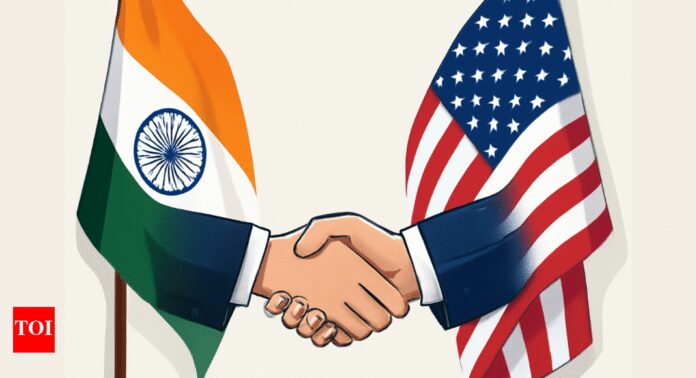Progress in India–US trade negotiations depends heavily on Washington revoking the additional 25 per cent tariffs linked to India’s Russian oil imports, according to a report by the India-based Global Trade Research Initiative (GTRI) as discussions resumed in New Delhi on Tuesday.“Negotiations will remain slow unless Washington signals genuine flexibility,” the GTRI report stated, as quoted by ANI, adding that “a swift resolution is unlikely and India should be prepared for extended negotiations.”This comes as lead negotiators from India and the United States began talks on Tuesday on a planned trade deal aimed at easing the uncertainty faced by exporters amid steep tariff rates, an official told PTI.
“The trade talks have started,” the official said.The latest round of talks marks the first meeting between US and Indian officials since President Donald Trump imposed an extra 25 per cent tariff on Indian products on August 27, citing India’s Russian oil purchases. That levy came on top of the reciprocal 25 per cent duties already in place since August 7. The US delegation is led by Brendan Lynch, Assistant USTR for South and Central Asia.GTRI said that while Washington appears eager for a trade agreement, “its officials frequently use critical rhetoric against New Delhi in public forums.” The think tank urged India to hold firm on agriculture and dairy, describing them as “essential for millions of farmers’ sustenance rather than mere trade matters.”“The challenge will be how much India concedes without undermining regulatory autonomy or economic sovereignty,” the report warned, stressing that “substantial progress is unlikely until Washington removes the additional 25 per cent tariff.”It further recommended that “India, in the meantime, should formally record its objections—potentially through an amicus curiae brief at the US Supreme Court—to support US businesses challenging the tariffs and keep the negotiation window open.”Talks on a fair, balanced and mutually advantageous Bilateral Trade Agreement (BTA) began in March with hopes of concluding the first phase by October–November 2025. Recent discussions on an interim deal have been slowed by India’s objections to US demands for wider agricultural and dairy market access.President Trump, during his second term, has maintained a policy of tariff reciprocity, stating that his administration will match other countries’ tariffs, including India’s, to “ensure fair trade.”

